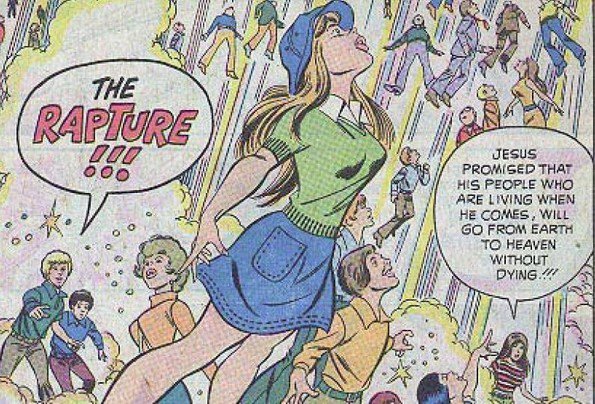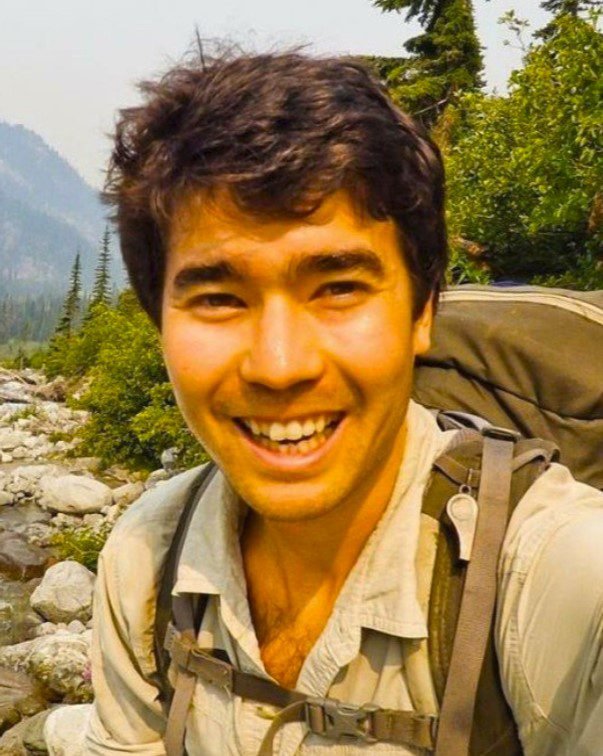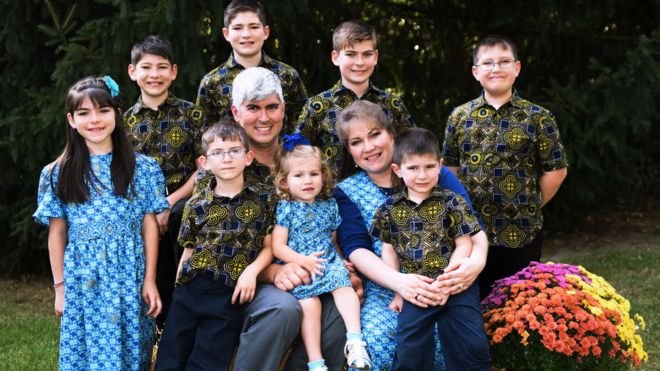
The junior church leader has gathered all the church’s elementary-age children together so she can share the “truth” with them. “Death is certain, and Jesus is coming soon; it could be today,” she breathlessly says. “We are living in the Last Days, and the Bible says all sorts of bad things will happen before the rapture.” Lowering her voice, giving it that worrying sound, she says, “True Christians, those who have asked Jesus into their hearts, will be persecuted for their faith, and some of them will be killed for believing in Jesus. Would you stand for Jesus? Would you be willing to die for Jesus? After all, he died for you; shouldn’t you be willing to give your life for him?” And then comes the graphic story meant to drive this “truth” home. “Suppose Islamic militants rounded up all the Christians and were shooting them if they refused to renounce Jesus. All you had to do is deny Jesus, and your life would be spared. Would you do it? Or would stand strong, believing that even if the militants killed you, you would go to Heaven, and Jesus would meet you there, saying, ‘well done thou good and faithful servant, enter into the joy of the Lord?'”
The junior church leader then gives an altar call, asking the children to recommit their lives to Jesus, to be ready and willing to die for him, if need be. And much like young Muslims answering their imam’s call for martyrs, bright-eyed, easily impressed Evangelical children profess their love for Jesus and willingness to die for their Lord and Savior.
We watch with horror as Muslim children blow themselves up in the name of Allah or Mohamed. Yet, we give nary a thought to how American Evangelical children are indoctrinated similarly. Why is that? Independent Fundamentalist Baptist (IFB) churches, in particular, are notorious users of fear of God, threats of Hell, and stories about Satanic enemies such as Muslims, atheists, and liberals to “motivate” children to follow Jesus to the death.
In 2020, I wrote a post titled, Martyrdom: Is Any Religion Worth Dying For? Here’s an excerpt of what I said:
Billy Watkins, a Christian and a writer for The Clarion-Ledger had this to say:
I can’t explain why.
Perhaps it doesn’t require an explanation.
But as the calendar quickly moved toward today — Easter Sunday — the more an image flashed in my mind: 20 Egyptian Christians and one other man, forced to their knees on a Mediterranean beach by members of ISIS on Feb. 15 and asked one by one if they believed in Jesus Christ.
Each answered yes, knowing the consequences.
All 21 were beheaded….
…It made me look inside myself, perhaps deeper than I’ve ever looked before.
It made me face the question: If I were in a similar situation, would I have the faith and the courage to look the ISIS cowards in the eye and say, “I believe in Jesus Christ.”
Knowing those would be the last words I ever said. Knowing the torture I was about to experience. Knowing my family and friends would grieve over my death. Knowing this life, which I can only comprehend as a struggling human, would end.
I would like to say yes, I would have the strength.
But do any of us really know until we are put in that situation?
To help me have some comparison for my struggle with this, I reached out to eight friends.
I asked them how they pictured themselves answering that question with a knife to their throats.
Some answered by email, others by Facebook message. Each provided food for thought. And I must commend them for digging deep inside their souls to help provide their answers.
One of the first I received: “This is very hard. I have tears. No, I am crying … I want to scream yes to those butchers. I believe in Jesus Christ!!!! But when I think of never seeing my husband, my family, my grandchildren, my grandchildren to come, I have to pause. More tears … ”
Friend No. 2 wrote, “I believe each Christian would always be ready to say, ‘Jesus Christ is my Lord and Savior.’ However, after watching two beheadings on YouTube, it gave me pause for thought. How could I possibly endure torture and a painful, slow death for my beliefs? My next thought was, ‘But that’s what Jesus did for me. Would he expect any less of me?’ ”
Friend No. 3: “There is a peace I believe God gives you in that situation. Just as Jesus prayed in the garden, twice, to let this cup pass from his wrath … I might say the same prayer, but in the end I would submit to God’s plan.”
Friend No. 4: “This is, of course, an impossible question to answer. Under the circumstances, I cannot imagine what I would do … it is always easier to sit in your living room and be convinced of your own virtues under the proposed circumstance. I also know I can rationalize decisions and I can waffle between what I want I know to be true … I could see this part of me rationalizing that it’s more important for me to live for any or all of the following …” My friend named his wife, children, extended family and church.
“I have so much to live for that lying to people who want to kill me is easily excused … (But) the scenario you describe is no time for rationalizing. It is a test … I hope I would get it … I want to be counted among those who would forgo this life for the better eternity to come.”
“Last point,” he wrote. “Hearing about the death of these 21 men has mattered to me — and not for the reason the killers wanted. It encourages me to live a life worthy of my calling. They died for Christ. May I at least live for him?”
Friend No. 5 wrote, “In facing a gruesome, wicked, evil death, my faith would still be in God. I hope and trust that such a painful ordeal would be ultimately redeemed and used by God for his purposes. Therefore, such a death is not in vain.”
Friend No. 6 was equally sure of his answer: “Faith is all you have left in that situation. To reject your faith would leave you with nothing — even if you lived. I can say unequivocally I would not reject my belief in Christ. If I did, I would be dead even though I lived. The other thing I know is that I would not die passively. I would fight with all my being. I would not let them dictate the terms of my death.”
Friend No. 7: “When you reach the most terrifyingly vulnerable moment of your life, you’re stripped to nothing but the things no can take away … the core beliefs that have driven every decision you’ve ever made. Ultimately, I would rather die outwardly professing my faith, with my death serving as a testament to those beliefs …
“But then I think of my child, of helping teach him those beliefs … If being a coward and lying to save my life means I’ll have the opportunity to raise a Godly man, so be it … Maybe this isn’t the right answer. But doing the right thing often means forgoing interests of the present so you can protect interests of the future.”
Friend No. 8: “Thomas Babington Macaulay wrote, ‘And how can a man die better than facing fearful odds, for the ashes of his fathers, and the temples of his Gods?’
“This world doesn’t afford many civilians the chance to die well for something that matters … it sounds cavalier, but I would be humbled and honored to be put in a situation where I had to choose between my life and the one thing that means most to me — my faith in Jesus Christ … I have a passion for this world, and ultimately the honestly amazing and blessed life that I’ve been given.
“I believe if he brings us to that place of choice, he gives us the grace to handle it if we remember that he is the ultimate source of everything … it’s not the end, it’s the beginning … let me go how he would take me, and let his will be done.”
This is what I believe: If I were put in that situation, I believe Jesus Christ would bathe me with a peace beyond human comprehension . . .
Those of us who were once Christians have asked the questions that Billy Watkins asks in his article. If it came to it, would we have been willing to die for Christ? Having grown up in a religious culture where persecution was touted as a sure sign of one’s faith, I had moments when I questioned whether I would stand up for Christ no matter what happened.
While Billy Watkins ponders whether he would be willing to lay his neck on the line for Jesus, I want to ponder the notion of a God who asks his followers to die for him. While most of us can readily understand dying for the sake of family or trying to help our fellow man, what are we to make of a religion and a God that put great value on dying for one’s faith? While Christians will likely say that their martyrdom allows them to give a final testimony to God’s love and grace, I do wonder about a God who could save someone from having their head chopped off and does nothing. What would we think of a man who stood by while his wife or children were violently attacked and killed? Dying for one’s family is recognized by all to be a heroic act. But, dying for a religious belief? Wouldn’t it be better to lie and live than to tell the truth and die? Unlike the Muslim, the Christian martyr receives no special reward for dying. Why die when you can live?
From their earliest ages, Evangelical children are taught:
- Their present lives are inconsequential and temporary
- That preparation for the next life is what matters
- That dying for one’s faith is the ultimate reward
- That martyrdom guarantees Christians preferential status in Heaven after they die
Many of the January 6, 2021 insurrectionists were Evangelical Christians — men and women who grew up on a steady diet of sermons, lessons, and books about being willing to die for Jesus. Does it come as any surprise that in a moment of insane passion that these same people were willing to die not only for Jesus, but also for the U.S. Constitution and Donald Trump? Those of us who stand outside of the Evangelical bubble shake our heads, forgetting that we ourselves were once indoctrinated with martyrdom teaching. Many of the readers of this blog might think back to their Evangelical days when dying for Jesus was the ultimate honor. What better way to show fealty to Jesus than to lose one’s head for him?
Most Evangelicals take a literalist approach to the book of Revelation. Evangelicals believe that someday soon Jesus will secretly come in the clouds and snatch them off the face of the earth. Once all the True Christians® are gone, God will pour out his wrath on those left behind. Yet, in a show of mercy, God will save a small number of the people who missed the rapture. These new converts will have to prove their faith by having their heads lopped off.
And I saw thrones, and they sat upon them, and judgment was given unto them: and I saw the souls of them that were beheaded for the witness of Jesus, and for the word of God, and which had not worshipped the beast, neither his image, neither had received his mark upon their foreheads, or in their hands; and they lived and reigned with Christ a thousand years.
One need only to read the Left Behind books (apocalyptic porn written by Tim LaHaye and Jerry Jenkins) or watch the movie series: A Thief in the Night (1972), A Distant Thunder (1978), and Image of the Beast (1983) to see how martyrdom is central to the Evangelical narrative of true faith.
Wikipedia explains the plot of the aforementioned movies this way:
Patty Myers is a young woman who considers herself a Christian because she occasionally reads her Bible and goes to church regularly, where the pastor is really an unbeliever. She refuses to believe the warnings of her friends and family that she will go through the Tribulation if she does not accept Jesus as her savior. One morning, she awakens to find that her husband and millions of others have suddenly disappeared. Gradually, Patty realizes that the Rapture has happened.
…..
In A Distant Thunder, the story of Patty is told in a flashback, which itself includes flashbacks. It begins with Patty awaiting her execution and, after fellow Christians awaiting execution ask her how she got there, she begins to tell the story and a flashback commences. The flashback begins where the previous film left off, with Patty awakening from her dream to realize that the Rapture has actually occurred. The film ends dramatically with Patty witnessing her friend Wenda being executed and arguing with Wenda’s younger sister Sandy (who, along with Jerry and Diane, urges Patty to take the Mark) who betrayed them—and being prepped for her own execution.
The third film begins with Patty being forced by UNITE soldiers to decide to take the Mark or to be publicly executed by guillotine. The soldiers strap her, speechless and in shock, down to the guillotine, lying face-up. A sudden earthquake and storm appear, and the soldiers and others nearby run for safety, leaving Patty strapped to the guillotine. She cries, “I want the Mark!”, yet no one was nearby to hear her or unstrap her. Alone, she attempts to unstrap herself, but the guillotine blade falls on its own, and Patty dies.
While Evangelicals are certainly more materialistic these days — ready for the rapture, but in no hurry to go — pastors, evangelists, missionaries, Sunday school teachers, and junior church leaders continue to indoctrinate children and adults alike in the Christian death cult. This is why Evangelicalism is not a harmless religion. Its teachings cause real psychological, and at times, physical harm. I started this post with a story gleaned from the many years I spent in the Evangelical church, both as a member and pastor. It is hard, is it not, to not conclude that such indoctrination is child abuse.
What were you taught about being willing to die for Jesus? Please share your stories in the comment section.
Bruce Gerencser, 68, lives in rural Northwest Ohio with his wife of 47 years. He and his wife have six grown children and sixteen grandchildren. Bruce pastored Evangelical churches for twenty-five years in Ohio, Texas, and Michigan. Bruce left the ministry in 2005, and in 2008 he left Christianity. Bruce is now a humanist and an atheist.
Your comments are welcome and appreciated. All first-time comments are moderated. Please read the commenting rules before commenting.
You can email Bruce via the Contact Form.



